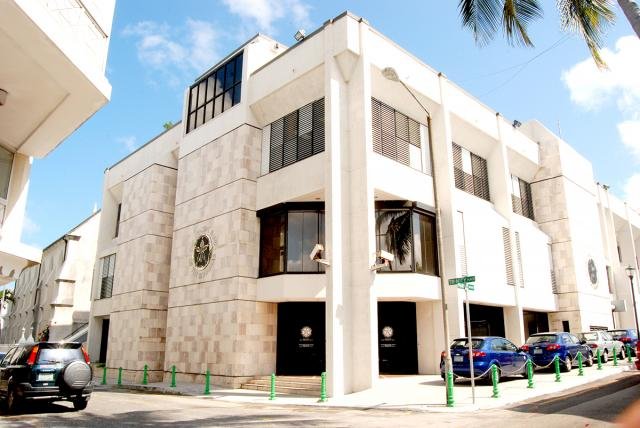NASSAU, BAHAMAS- A Central Bank commissioned anti-money laundering (AML) report has revealed that Bahamian banks and trust companies have a strong compliance culture, with only 14 percent of unsolicited approaches from dubious new clients generating a response from local firms.
The Central Bank yesterday released an AML compliance report prepared by Evaluasi, a specialist firm known for its AML research, involved a “shadow shopping” exercise targeting over 75 percent of internationally active public banks and trust companies in The Bahamas. The study simulated unsolicited approaches via email to 50 institutions, assessing their response and compliance with AML rules.
Shadow shopping is a methodology whereby researchers simulate attempts to engage in illicit finance under natural conditions in order to observe the response of regulated firms. This assurance method provides a direct, accurate and scientifically rigorous augmentation of supervisory approaches to regulatory compliance with Anti-Money Laundering (AML) rules.
The results of the exercise revealed that only 16 of the 50 financial institutions responded to the approximately 250 email solicitations, demonstrating that The Bahamas is not a particularly welcoming jurisdiction for unsolicited potential client approaches. The report also revealed that 100 per cent of the engagements between the 16 responding firms and the shadow shopping team evidenced that the responding institutions provided upfront disclosure of the relevant AML requirements, notably the know your customer (KYC) rules coupled with FATCA and CRS reporting requirements. Further it was the 2023 shadow shopping result, similar to a 2020 multi-country exercise conducted by the Evaluasi researchers, gave good assurance that Bahamian banks and trust companies demonstrate a strong compliance culture due to banks and trust companies only being willing to on-board clients that can satisfy the relevant KYC as well as FATCA and CRS reporting requirements.
Central Bank Governor John Rolle noted, “This shadow shopping exercise demonstrates that the Central Bank will take a more proactive and more holistic approach to assessing the state of AML compliance within this jurisdiction supplemental to its traditional supervisory tools. We want our industry to demonstrate exemplary AML compliance, which in this instance they have done. This is not to say that our supervised institutions are perfect in an AML compliance sense, but this and many other findings suggest that Bahamian banks and trust companies are among the stronger groups globally when it comes to avoiding new clients who cannot demonstrate clean sources of funds.”
The report noted that the apparent resilience of the Bahamian financial system to illicit finance warrants further examination, including shadow shopping that simulates known customers or that employs forms of initial contact other than email.
“The CBB and other financial regulators may wish to explore how and why this resilience emerged and how they can replicate or build on successes to ensure the continuing robust and effective regulation of the financial sector.”
It was noted however that the study is not an exhaustive examination of compliance and regulatory processes in The Bahamas and should not be interpreted as a blanket determination that Bahamian financial institutions are compliant with the full range of their regulatory obligations.


